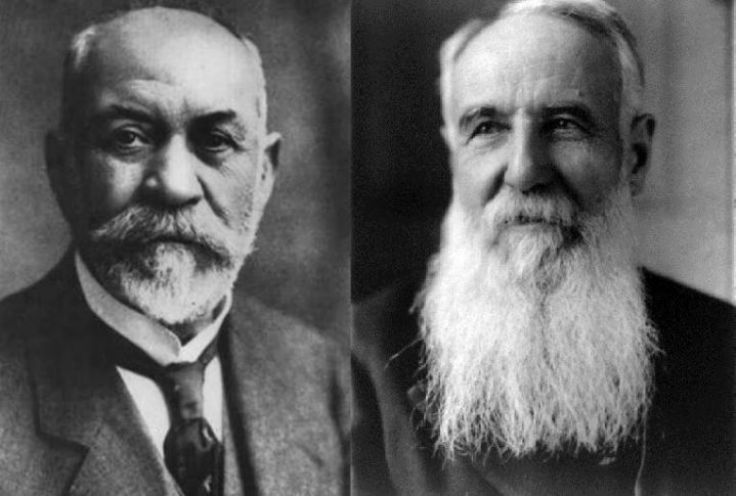
The Royal Serbian Government had two days to respond to the shameful Austro-Hungarian ultimatum in 1915. The Prime Minister Nikola Pašić personally delivered the answer. As soon as he returned to the cabinet, Baron Giesl sent his response in form of a letter, stating that the diplomatic relations between two countries have been severed.
The Royal Serbian Government’s response to the Austro-Hungarian ultimatum was written by Stojan Protić and the Prime Minister Nikola Pašić, who had personally delivered it to the Baron Giesl. The response was characterized as lenient but dignified as well, since the Royal Serbian Government did not accept the participation of the Austro-Hungarian authorities in the suppression of subversive activities against the Austro-Hungarian Empire on the Serbian territory. Still, government offered the possibility of the Hague Tribunal’s arbitration, or that the Great Forces form commissions which would resolve the disputed claims in point 6.
However, the Austro-Hungarian Monarchy didn’t think so, and neither did the Baron Giesl, whom it took less than an hour to reach a decision that Serbia didn’t offer a favorable response. He demonstratively left Austro-Hungarian Embassy in Belgrade together with all his personnel and relocated to Zemun instead.
In the response that riled the Baron Giesl and which was the trigger point that started the WWI, was stated the following:
- During the next regular meeting of the National Assembly, The Royal Government of Serbia is obligated to embody in the press laws a clause, to wit, that the incitement to hatred of, and contempt for the Monarchy is to be most severely punished, as well as every publication whose general tendency is directed against the territorial integrity of Austria-Hungary. It binds itself in view of the coming revision of the constitution to embody an amendment into the Article 22 of the constitutional law which permits the confiscation of the aforementioned publications since that is not possible according to the clear definition of the constitution’s Article 22.
- The Government possesses no proofs nor does the note of the Imperial and Royal Government submit them that the “Narodna Odbrana” society and other similar societies have committed, up to the present, any criminal actions of this manner through any one of their members. Notwithstanding this, the Royal Government will accept the demand of the Imperial and Royal Government and will dissolve the “Narodna Odbrana” society, as well as every society which should set against Austria-Hungary.
- The Royal Serbian Government binds itself without delay to eliminate from the public instruction in Serbia anything which might further the propaganda directed against Austria-Hungary provided the Imperial and Royal Government furnishes actual proofs of this propaganda.
- The Royal Government is also ready to dismiss those officers and officials from the military and civil services in regard to whom it has been proved by judicial investigation that they have been guilty of actions against the territorial integrity of the Monarchy; it expects that the Imperial and Royal Government communicate to it for the purpose of starting the investigation the names of these officers and officials, and the facts with which they have been charged.
- The Royal Government confesses that it is not clear about the sense and the scope of that demand of the Imperial and Royal Government which concerns the obligation on the part of the Royal Serbian Government to permit the cooperation of officials of the Imperial and Royal Government on Serbian territory, but it declares that it is willing to accept every cooperation which does not run counter to international law and criminal law, as well as to the friendly and neighborly relations.
- The Royal Government considers it its duty as a matter of course to begin an investigation against all those persons who have participated in the outrage of June 28th and who are in its territory. As far as the cooperation in this investigation of specially delegated officials of the I. and R. Government is concerned, this cannot be accepted, as this is a violation of the constitution and of criminal procedure. Yet in some cases the result of the investigation might be communicated to the Austro-Hungarian officials.
- The Royal Government has ordered on the evening of the day on which the note was received the arrest of Major Voja Tankosić. However, as far as Milan Ciganović is concerned, who is a citizen of the Austro-Hungarian Monarchy and who has been employed till June 28th with the Railroad Department, it has as yet been impossible to locate him, wherefore a warrant has been issued against him. The Imperial and Royal Government is asked to make known, as soon as possible for the purpose of conducting the investigation, the existing grounds for suspicion and the proofs of guilt, obtained in the investigation at Sarajevo.
- The Serbian Government will amplify and render more severe the existing measures against the suppression of smuggling of arms and explosives. It is a matter of course that it will proceed at once against, and punish severely, those officials of the frontier service on the line Šabac-Loznica who violated their duty and who have permitted the perpetrators of the crime to cross the frontier.
- The Royal Government is ready to give explanations about the expressions which its officials in Serbia and abroad have made in interviews after the outrage and which, according to the assertion of the I. and R. Government, were hostile to the Monarchy. As soon as the I. and R. Government points out in detail where those expressions were made and succeeds in proving that those expressions have actually been made by the functionaries concerned, the Royal Government itself will take care that the necessary evidences and proofs are collected.
- The Royal Government will notify the Imperial and Royal Government, so far as this has not been already done by the present note, of the execution of the measures in question as soon as one of those measures has been ordered and put into execution.
After the Baron Giesel’s reaction to the response, that same day (July 25th) was published a Serbian government’s Manifesto by which the people learnt about the situation and the possibility of war. And war certainly came knocking on the Serbian door, but also on the doors across the whole world. Next evening brought the first volleys to Belgrade.
Source: serbia.com
 Управа за сарадњу с дијаспором и Србима у региону Управа за дијаспору
Управа за сарадњу с дијаспором и Србима у региону Управа за дијаспору



